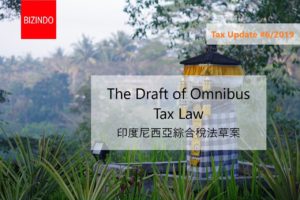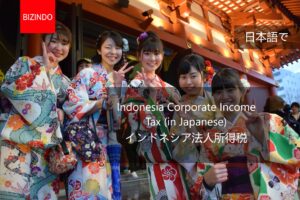In a surprising move, the adjustment of entertainment tax rates, ranging from 40% to 75%, has sparked widespread criticism from both the public and business circles in Indonesia. This substantial tax hike has been outlined in Law No. 1/2022 concerning Financial Relations between the Central Government and Regional Governments (HKPD).
Entertainment tax, primarily collected by local governments, is unique in that consumers bear the responsibility of paying the tax, with businesses acting as mere collectors of the predetermined tax amounts. However, despite its legal standing, the regulations within the HKPD Law cannot be enforced until local governments issue Regional Regulations (Perda).
On another front, the Jakarta Provincial Government has officially decreed specific goods and services tax (PBJT) rates for entertainment categories like karaoke and spas at 40%, effective from the year 2024. This development is part of Regional Regulation (Perda) No. 1/2024 on Regional Taxes and Regional Retributions, signed by Acting Governor Heru Budi Hartono on January 5, 2024. PBJT rates for food and/or beverages, hotel services, parking services, and arts and entertainment have been set at 10%.
The Highest Entertainment Tax Reaches 75%
So, what exactly does the law say about the maximum entertainment tax? According to Article 58, paragraph (1) of Law No. 1/2022 (HKPD Law), the rate for specific goods and services tax (PBJT) is capped at a maximum of 10%. However, the subsequent paragraph throws a curveball, stating that the PBJT rates for specific entertainment services in discos, karaoke bars, nightclubs, bars, and steam baths/spas can be as low as 40% and as high as 75%.
Within this policy, arts and entertainment services are categorized as objects of Specific Goods and Services Tax (PBJT). Article 55 specifies that arts and entertainment services include live performances, music, dance, and/or fashion shows; beauty contests; bodybuilding contests; exhibitions; circus, acrobatics, and magic shows; horse racing and motor vehicle races; skill games; sports games using facilities/equipment for sports and fitness.
Additionally, it encompasses water recreation, ecological parks, educational parks, cultural parks, snow parks, amusement parks, fishing, agrotourism, and zoos. Furthermore, massage parlors and reflexology; and discos, karaoke bars, nightclubs, bars, and steam baths/spas.
However, the contentious point for entrepreneurs is the specific PBJT rates for entertainment services in discos, karaoke bars, nightclubs, bars, and steam baths/spas, which are set at a minimum of 40% and a maximum of 75%.
“The basis for imposing PBJT is the amount paid by consumers for specific goods or services,” states Article 57.
Rising Entertainment Tax Sparks Opposition from Various Parties
This approach, however, has become a source of controversy, particularly regarding the minimum 40% rate set for specific entertainment services in discos, karaoke bars, nightclubs, bars, and steam baths/spas, reaching as high as 75%.
The debate surrounding the high entertainment tax rates has gained traction, with one of the critical points being the establishment of a minimum 40% rate. As reported by Bisnis, Hariyadi Sukamdani, Chairman of the Indonesian Tourism Industry Association (GIPI), expressed concern, stating that such a tax increase contradicts the state’s role. He emphasized that the industry plays a crucial role in providing mass employment, irrespective of educational levels.
“The imposition of a minimum limit of 40% to 75%, in our view, will actually cripple this industry,” remarked Hariyadi during a press conference at Taman Sari Royal Heritage SPA on Thursday (11/1/2024)..
The introduction of a 40% Specific Goods and Services Tax (PBJT) has caused quite a stir among business owners and tourism stakeholders in Bali. Entrepreneurs are worried that the hefty entertainment tax could have detrimental effects on Bali’s tourism, given the sector’s significant contribution to tax revenue. The well-being of those involved in tourism must be carefully considered both in regulatory design and practical implementation.
Fajry Akbar, the Research Manager of the Center for Indonesia Taxation Analysis (CITA), highlighted the potential repercussions for regions highly dependent on the entertainment industry affected by these tax rates.
“Regions whose economies rely on nightlife tourism like Bali should not have excessively high rates to compete with international tourism sectors,” noted Fajry, underlining the need for balanced tax policies to maintain competitiveness, as quoted by CNBCIndonesia.
Minister of Tourism and Creative Economy: No Need to Worry!
In response to the widespread opposition, the Government seeks to reassure tourism entrepreneurs, particularly those in the entertainment sector, assuring them that the 40% to 75% entertainment tax rates are part of policies designed to support the tourism and creative economy industry.
“Do not worry; the government is coming up with policies that are certainly in favor of tourism industry players,” said Sandiaga Uno, Minister of Tourism and Creative Economy, as reported by Antara on Monday (15/1/2024).
Sandiaga emphasized the government’s commitment to empowering players in the tourism and creative economy industry rather than stifling their growth. He stressed that these policies are aimed at creating an environment that fosters development and sustainability.
“We will ensure that our policies will empower players in the tourism and creative economy industry, not stifle them,” reassured Sandiaga.
Acknowledging concerns about potential declines in the number of domestic and foreign tourists, Sandiaga emphasized the importance of conveying a narrative that positions Indonesia as a quality and sustainable tourism destination.
To foster constructive dialogue, the Ministry of Tourism and Creative Economy has engaged with entertainment business players through programs in various regencies and cities in Indonesia. These discussions aim to gather insights from those actively involved in the creative economy and entertainment sector, contributing to a collaborative decision-making process.
While the discussions continue, the impact of the entertainment tax increase on employment in the tourism industry remains a subject of concern. The delicate balance between revenue generation and industry sustainability will undoubtedly shape the ongoing debate surrounding these tax adjustments. As the government navigates this terrain, the public can expect further clarifications and potential modifications to address the nuanced challenges arising from these tax changes.





 20% off today. Whatsapp us!
20% off today. Whatsapp us!